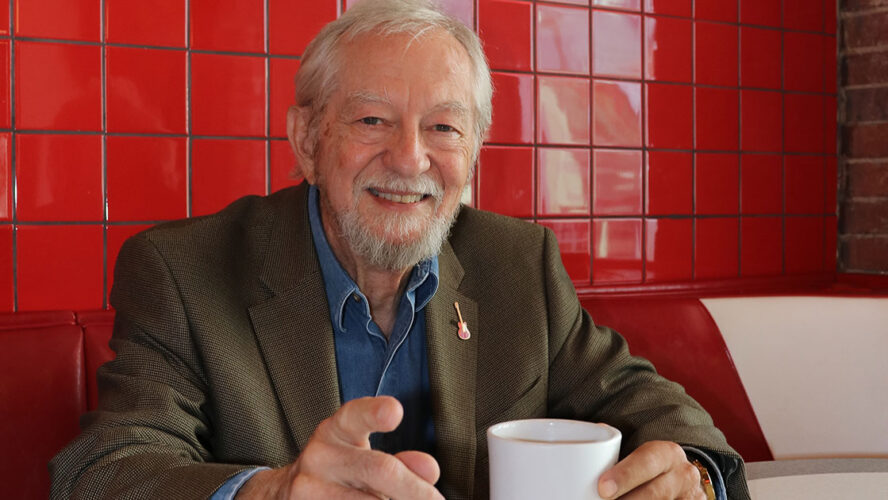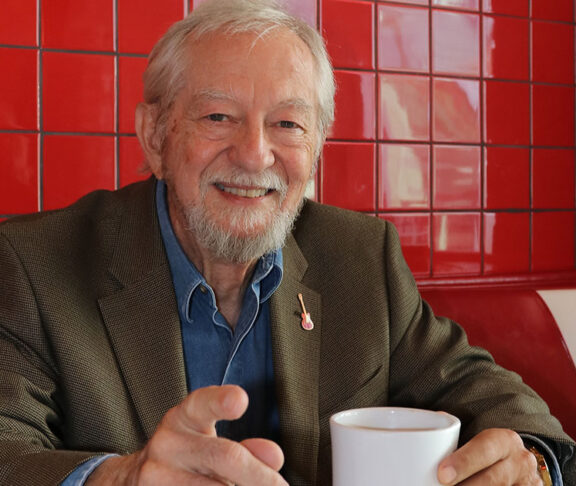Dave Nemo, founder of RadioNemo and host of Nemo Nation, gets to the root of the industry’s challenges, encouraging people to remember the human in the truck.
For those who may not know, what inspired the creation of trucking radio, and what’s the mission behind RadioNemo today?
Trucking radio started in New Orleans back in 1971. Late at night, radio host Charlie Douglas realized the highways were full of truckers, but nobody was talking to them. That’s where it all began. From Day 1, our mission has been to keep drivers awake, alert, and alive. That’s still what we do, just in a different form today. RadioNemo is about connection and community. It’s a place for drivers to feel heard and supported while they’re out there keeping America moving.
Storytelling and music play a big role in your work. Why are they so important for truck drivers?
Because they’re real. Truck drivers can spot a fake from a mile away. They’ve been shortchanged and lied to more than most, so the only thing that works on the air is honesty. Charlie Douglas, the man who started all this, once told me, “Just be yourself. They’ll like you or they won’t, but they’ll know you’re real.” That advice stuck. Back before cell phones, the radio was their lifeline; it connected them to home. The stories, the conversations, and the music reminded them they weren’t alone. Music, especially, is the heartbeat of the highway. Most drivers come from small towns and farm communities, and country music is in their DNA. When they leave home, those songs go with them. Music carries their memories, eases loneliness, and turns a long stretch of road into something familiar and comforting.
You’ve talked a lot about humanizing truck drivers. Why do you think they’re often misunderstood?
People don’t see the person behind the wheel. When a car cuts someone off, we say, “Look at that driver,” but when it’s a truck, people say, “Look at that truck.” The human disappears. These are real people with families, hobbies, and stories just like anyone else. Years ago, on air, I asked drivers what they liked to do off the road. One said he collected antique cast-iron cookware; another collected first-edition books, one signed by Mark Twain. That’s who they are — complex, thoughtful, good people who rarely get seen for it.
From your perspective, what’s the most pressing safety or quality-of-life issue facing drivers today?
Parking. Hands down. Every problem seems to grow from that — fatigue, stress, safety, or even mental health. Drivers can’t rest if they can’t find a safe place to park. There’s been study after study, and now even paid parking is being sold as a solution. It’s been politicized and monetized instead of fixed. I’ve told people for years that we could pave a parking lot with all the studies we’ve done.
When a driver can’t find parking, it’s not just inconvenient; it’s dangerous. A man named Jason Rivenburg was killed for seven dollars after he had to park at an abandoned gas station. That’s what happens when a system forgets the human at the center of it.
The industry also faces mental health challenges. How can media and communities better support drivers’ well-being?
Loneliness is one of the hardest parts of the job. Being alone on the road with nothing but your thoughts can wear anyone down. That’s one reason radio mattered: It gave them someone to talk to, something familiar. Years ago, we even had a counselor on air, and the calls poured in. What we heard was heartbreaking. It showed just how much drivers carry in silence.
The best thing we can do is keep giving them space to be heard — to remind them they’re not invisible and that what they do matters.
What message would you like to leave for truck drivers across the country?
Know that you’re seen, you’re valued, and this country doesn’t run without you. You’re not just part of the road; you are the road.

